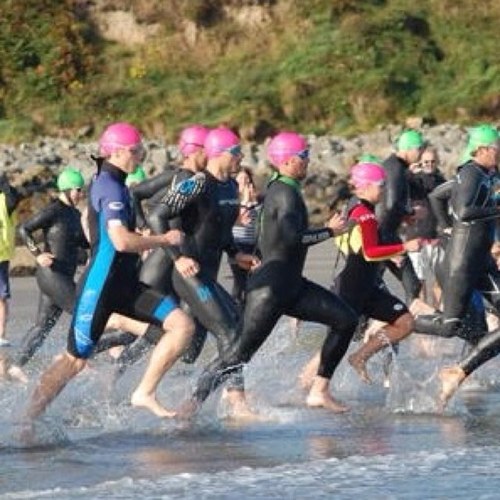Undergraduate perspective on Sports & Exercise Medicine – a BJSM blog series
 By Steffan Griffin (@lifestylemedic)
By Steffan Griffin (@lifestylemedic)
BeTheChange (1) is the product of many months spent personally discovering the unparalleled health benefits of regular physical activity. With no other alternative known to reduce the risk of chronic diseases such as hypertension by such astounding rates (2) it is essential that the global population becomes more active.
This, coupled with the fact that physical inactivity currently costs the NHS around £8.2 billion annually (3) means that there is more reason than ever to ensure that each member of society is sufficiently active. As pointed out by leaders such as Dr Weiler, physical inactivity has become the biggest silent killer of our time. (4) But we already know this – where do we go from here…
With the support of the Move.Eat.Treat campaign among many others, BeTheChange is hoping to provide future doctors at Birmingham Medical School with the skills and knowledge to mobilise society, thus reducing the present and future strain on the NHS.
With the NHS currently dealing with the effects of this inactivity epidemic, who better to lead us out of this slumber than its current and future workforce?
Using the targets outlined in the call to action by Professor Steven Blair, we have devised two main targets. (5)
BeTheChange aims:
- To educate all students about how physical activity is one of the most valuable healthcare tools and how to implement this knowledge.
- To get the cohort more active, increasing the likelihood of the students advocating physical activity as a healthcare tool (6)
In conjunction with the local School of Sport and Exercise Sciences, the project is to provide a lecture-based teaching afternoon at the medical school, covering multiple topics associated with physical activity and health in a relevant and fun manner.
With the full backing of this prestigious school, we aim to use this teaching as a springboard to launch future teaching materials and sessions for the cohort, with the aim of full integration into the curriculum in the next 3 years. From here, we aim to design and implement community wide schemes, collaborating with primary care service providers to benefit the local population.
We are also working with local fitness service providers to provide a personalised programme of events to those involved in the scheme, creating a link with an industry of monumental importance in the fight to get the population active.
From training some of our students to become qualified ‘trim-trail’ instructors to the provision of free week-long gym passes, we aim to get the majority of both students and staff active and reaping the rewards of physical activity.
By getting those involved in healthcare more active, we are sending a powerful message to society that physical activity is a crucial and achievable lifestyle component, with its benefits applicable to all aspects of life.
We hope that its debut at the University of Birmingham’s Medical School will contribute to more advocacy of exercise as a medicine, along with a more inter-disciplinary approach to tackling the undoubted problems that have arisen in our largely sedentary society.
With the health service turning to increasingly complex methods to deal with the current burden of disease, is it not feasible to believe that the greatest benefit could be achieved by turning to one of the most primal human behaviours?
If you want to be updated with our progress at any stage or have any suggestions, please email me at steffangriffin@gmail.com. Watch this space!
References
(1): www.bethechangenhs.weebly.com
(2): Barlow CE, LaMonte MJ, FitzGerald SJ, Kampert JB, Perrin JL, Blair SN. Cardiorespiratory fitness is an independent predictor of hypertension incidence among initially normotensive healthy women. Am J Epidemiol. 2006;163:142–150
(3): Department of Health. Choosing activity: a physical activity action plan. London Dept of Health 2005
(4): Weiler R, Feldschreiber P, Stamatakis E. Medicolegal neglect? The case for physical activity promotion and exercise medicine. Br J Sports Med 2012;46:228–32.
(5): Joy E, Blair SN, McBride P, et al. Physical activity counselling in sport medicine: a call to action. Br J Sports Med 2013;47:49–53
(6): Lobelo F, Duperly J, Frank E. Physical activity habits of doctors and medical students influence their counseling practices. Br J Sports Med 2009;43:89–92.
**************************************
Steffan Griffin is a second year medical student at the University of Birmingham. As an ambassador for Move.Eat.Treat and as a committee member of the Birmingham University Sport and Exercise Medicine Society (BUSEMS), he is passionate about the role of exercise as a proactive healthcare tool. He combines a passion for all things SEM related with an avid interest in sport, and tries to live as active a life as possible.
Liam West BSc (Hons) is a final year medical undergraduate student at Cardiff University, Wales. He coordinates the “Undergraduate Perspective on Sports & Exercise Medicine” Blog Series for BJSM.